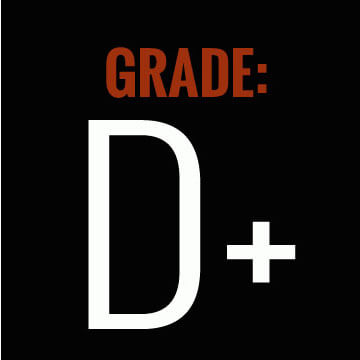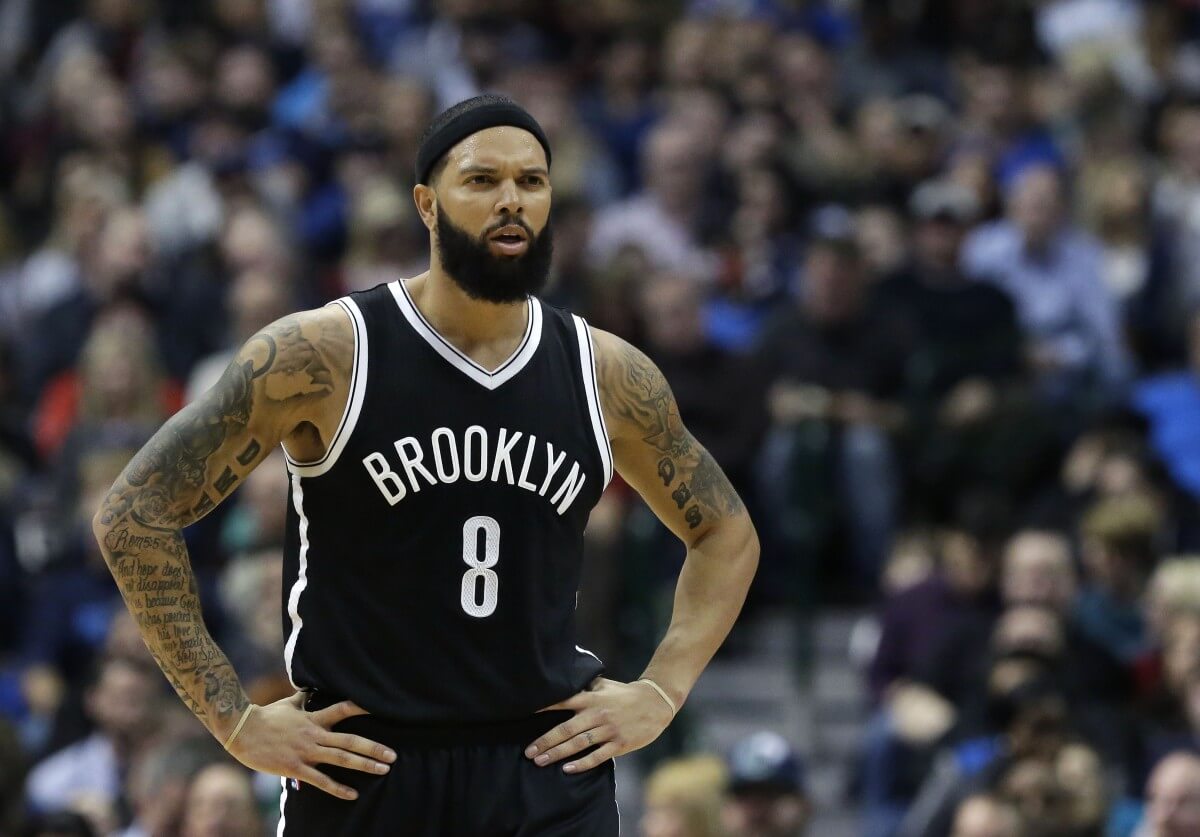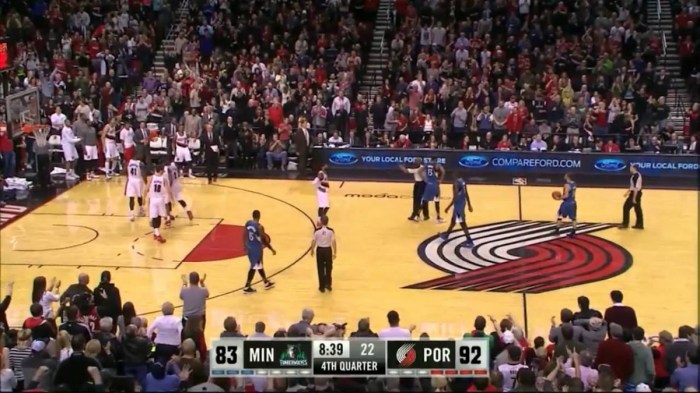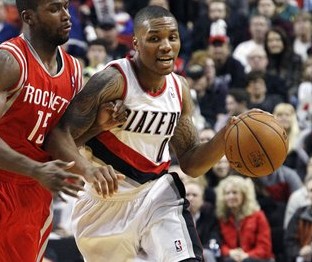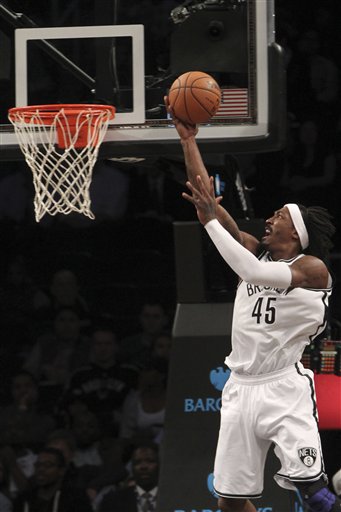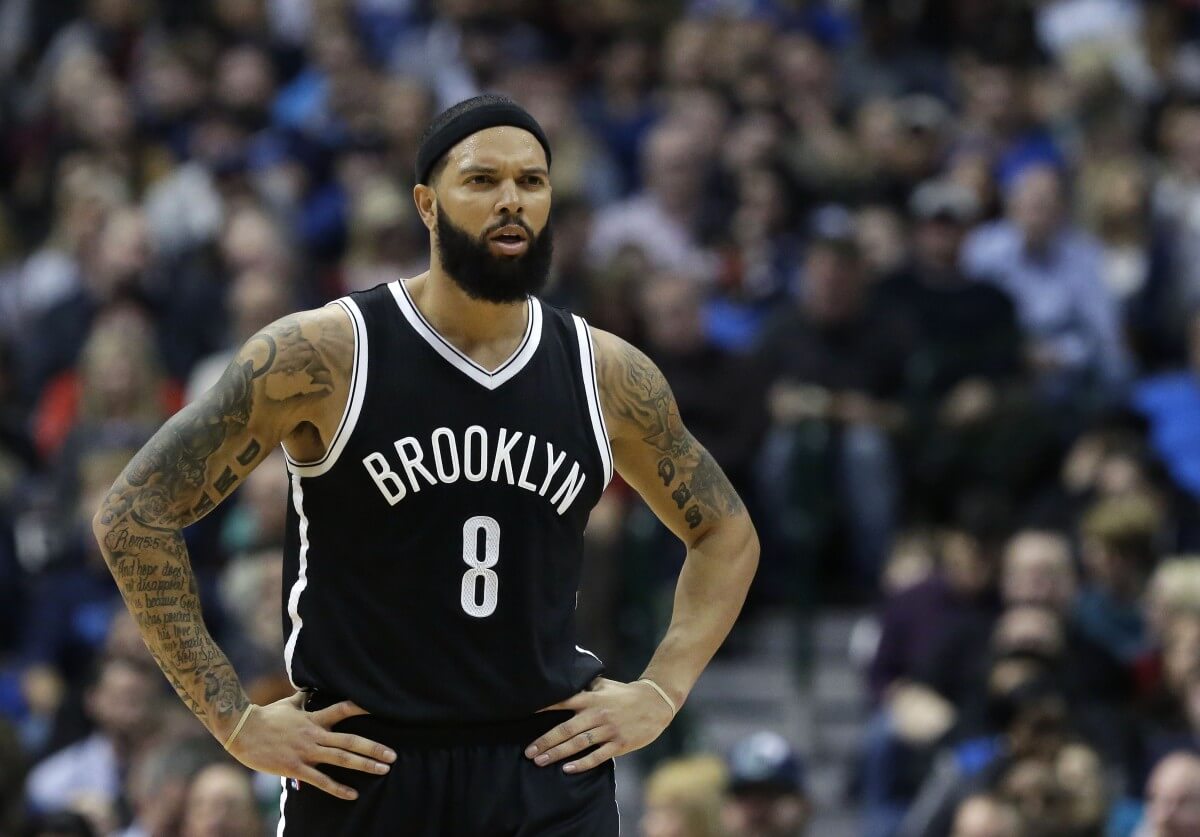
Deron Williams is the first subject of our offseason Nets In Review series.
Stats: 68 G (55 GS), 31.1 MPG, 13.0 PTS, 6.6 AST, 3.5 REB, 0.9 STL, 0.3 BLK, 2.3 TOV, 38.7 FG%, 36.7 3PT%, 83.4 FT%, 50.4 TS%, 15.7 PER, 105 ORtg, 109 DRtg, 3.6 win shares
The Season: The quote spread like wildfire. Lionel Hollins had dissed Deron Williams. He’d jabbed him. He’d called him out in six words.
“He’s not a franchise player anymore.” And in one fell swoop, the world ran with it: an NBA coach had insulted one of his core players.
Except, he’d done nothing of the sort. Hollins has never coached Deron Williams when Williams was a marquee name. It comes off as a strong statement if it’s 2012, but Hollins had merely been asked his thoughts about whether or not Deron Williams was a franchise player, and responded accordingly. Saying Deron Williams is no longer a “franchise” player is like saying the wind isn’t a vegetable. It was simply matter-of-fact, not “as a matter of fact!”
Because Deron Williams isn’t a franchise player, and Lionel Hollins didn’t need to say it after the season for you to know that.[note] We mentioned it, of course, though I like to think we properly contextualized it.[/note]
In fairness, this was supposed to be Williams’s comeback season. The former All-Star guard underwent surgery on both of his ankles in the offseason, which was supposed to catapult him back into relevance. I’ve said it before: if he couldn’t be the 26-year-old Deron Williams, he should at least have been the 30-year-old version of that player, creating easy looks for himself and others to re-enter his name into the league’s list of top point guards.
But on the court, Williams’s production ranged from sneakily ordinary to wholly underwhelming. The good: Despite his poor raw stats and shooting, he did post the team’s best on-court net rating over the course of the year. Though having plus-minus pariah Jarrett Jack as his backup partially helped in that regard, the Nets outscored teams by 4.9 points per 100 possessions with Williams at the helm and Jack not on the floor, a comparable number to starting point guards John Wall (+5.3), Damian Lillard (+4.5), and Derrick Rose (+4.1).[note]To state the painfully obvious, this isn’t to say that Williams is on the same level of those three guys — Rose was hurt much of the year, Lillard plays in the much tougher Western Conference, and Williams couldn’t figure out how to play with Jack on the floor, an indictment of both of them — but rather to note that the team did have success with Williams running the show.[/note]
There were a few signature moments peppered throughout the season (more on that later), but his finest gift to the team was his renewed chemistry with Brook Lopez following the All-Star Break. Williams found Lopez often with the pocket pass of simple high pick-and-rolls, and was instrumental in Lopez’s back-to-back Player of the Week Awards. He averaged 2.7 assists per game to Lopez after the break, more than he averaged to any other two teammates combined.
But it’s difficult to ignore the remaining factors: Williams’s aching body (he played his fewest minutes per game since his rookie season, missed 14 games with various injuries, and had to earn his starting spot back), his awful shooting numbers (Williams’s 39.5% shooting on two-pointers was the worst in the NBA among players with at least 400 attempts, per Basketball-Reference.com), his non-existent lift, and constant up-and-down confidence and moodiness as the leader of a below-average Eastern Conference team on the trade block all season.
There were those moments where he’d turn someone around on a crossover, or hit back-to-back three-pointers. But it was those glimpses that were the hardest part of watching Deron Williams play this season: those fleeting seconds served a reminder of something that no longer existed. It was a zombified snapshot that left as quickly as it came.
The team has tried diligently to cut Williams loose via trade, with no takers outside of a brief discussion in December with the Kings that stalled when the team refused to trade away Mason Plumlee. Now it’s hard to imagine any team taking a flyer on him. If he was a focal point during Brooklyn’s mild playoff success, he is also the symbol of their rapid, expensive decline.
Telling Stat: Williams shot 43.2 (80-185) percent from the restricted area this season, the worst mark in the NBA for anyone with more than 60 attempts. It was a sharp decline even from the year before, when Williams was only able to throw down two or three dunks all year (depending who you ask). This season brought no dunks for Williams, and limited lift meant he could barely get up for layups, either.
High Point: I mean… come on.
If only for one game, Deron Williams was back to his old self. It was absolutely surreal.
Low Point: Probably the rest of that series; Williams scored 35 points in Game 4 and scored 36 in the other five games combined. Not counting that game, Williams shot 27.5 percent from April 10th on.
Notable Quotable: “If I’m 0-for-f**king-9, I’m not shooting 20 more shots. Not going to happen. I’m a point guard. I’m going to find somebody else.” — Williams on Kobe Bryant’s criticisms.
Signature Move: Hitting an opponent with one or two lethal crossovers, getting stuck in the second line of defense, and missing a floater or layup.
Defining Photo:
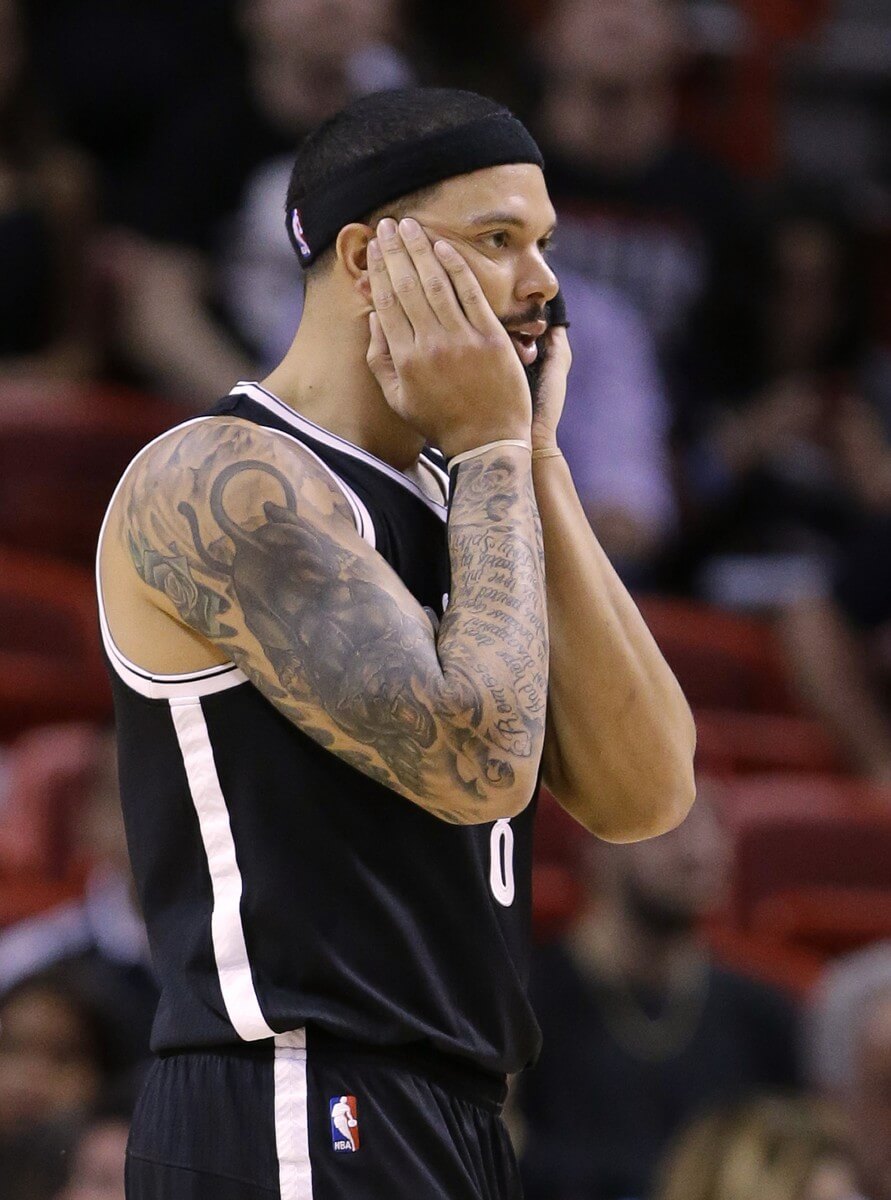
If He’s Still Here Next Year, He Can Improve… Shot selection. If Williams’s around-the-rim game is gone, he can still be effective as a three-point shooter: Williams shot 36.7 percent from three-point range this season, and over 40 percent on catch-and-shoot attempts. Three-point shooting is one of the longer-lasting NBA skills, and if Williams wants to transition into this next stage of his career gracefully, he might want to take a page from guys like Jason Kidd and Vince Carter, who increased their three-point shooting as their interior skills diminished, extending their careers by a few years.
